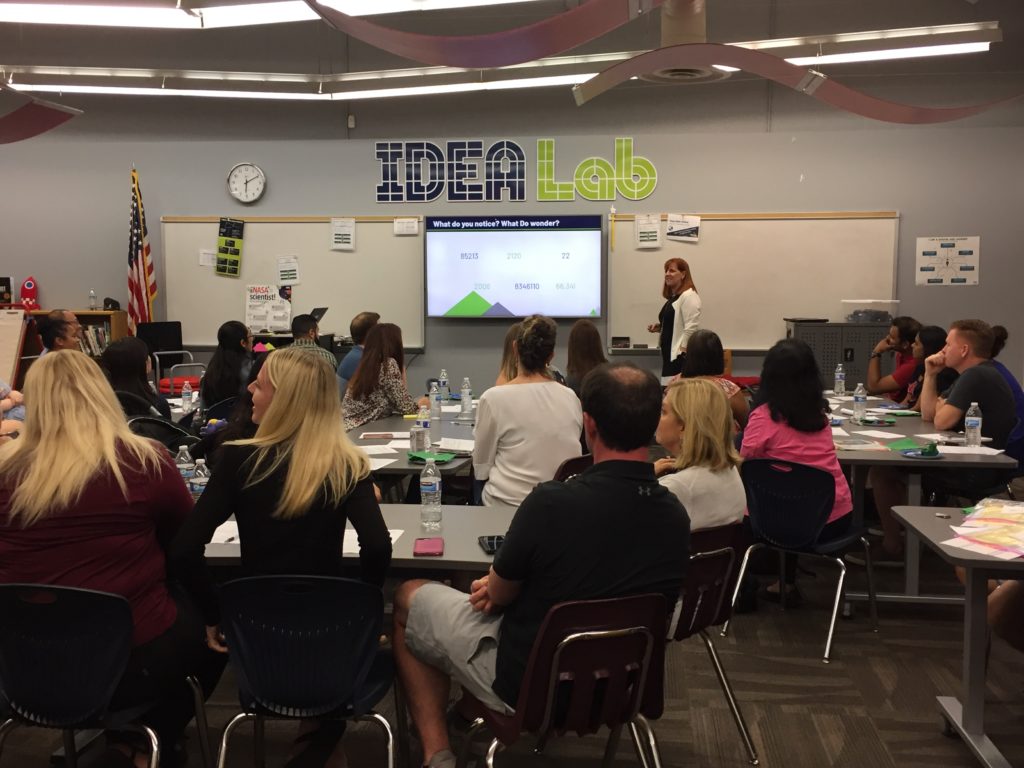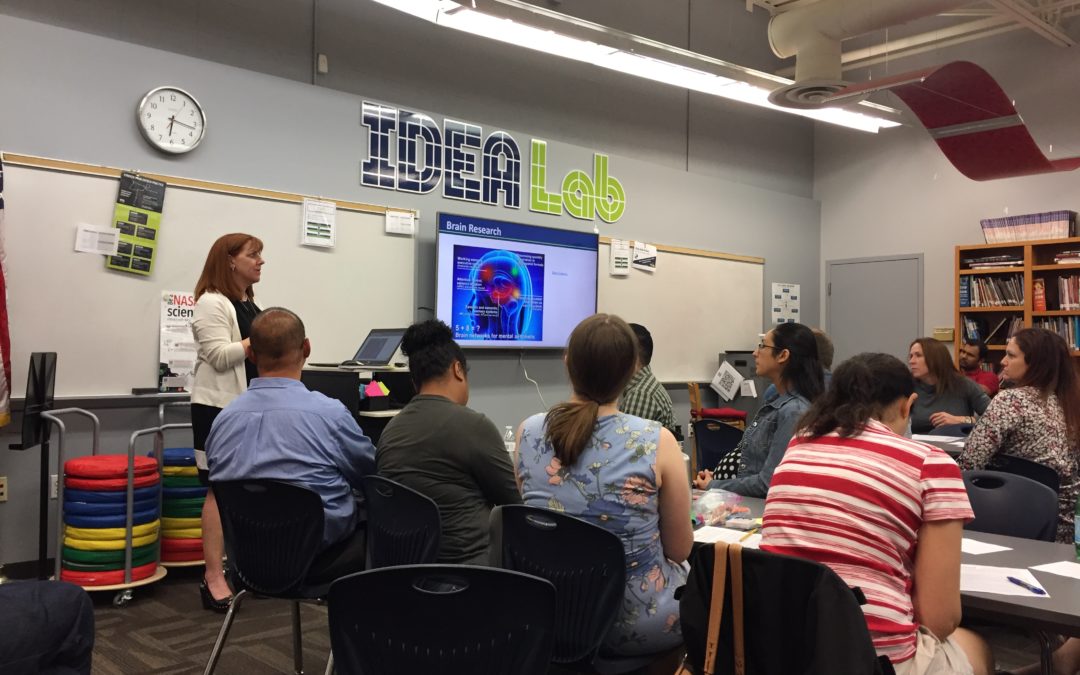At Preschool-Second Grade Math Night last night, Summit’s Math Specialist, Molly Danforth, encouraged parents to have their children approach math with creativity, courage, and a sense of play. Giving kids both the opportunity and reason to love math is a cornerstone of lifelong learning.
Ms. Danforth presented a TED Talk by mathematician Dr. Dan Finkel called “Five Principles of Extraordinary Math Teaching” and led parents in hands-on activities demonstrating them. These principles are embedded in our math instruction at Summit.
- Start with a question. This seems obvious, but there’s more to it. Starting with a question requires students to do more than just memorize, follow, and repeat steps. Doing these is important, but not enough–robots and computers do them very well. Finding the answer to a challenging question invites imagination, creativity, and even struggle.
- Give students time for productive struggle. When students roll up their sleeves, get their hands dirty, and grapple with real-world math problems, they become more tenacious and persistent. They build their stamina for working through tough challenges instead of giving up. As parents, it can be hard to watch our kids struggle with a hard problem, but fighting the temptation and letting them work through it themselves can lead to deeper engagement and intellectual growth.
- You are not the answer key. Ms. Danforth reminded us that math is a lot more than simply arriving at the correct answer. The process of getting there matters, and there are almost always multiple methods to get there. Memorizing and regurgitating information requires very little critical thinking. On the other hand, mathematical conversations that allow students to think and process out loud, deepen their mastery and stimulate cognitive development.
- Say “yes” to your child’s ideas. When we were in school, there was one “right” answer, and the rest were “wrong.” Don’t get me “wrong”—the correct answer is important, and we need to strive for precision. Solving hard math problems takes creativity and courage from our kids. Saying “yes” isn’t the same as saying “right” or “wrong”. It affirms the intellectual exploration they’re doing. “Yet” is another helpful term, as in “you’re on the right track…just not quite there yet.”
- Play. Quoting Einstein, Dr. Finkel reminds us “play is the highest form of research.” Rigor and play can go hand in hand when students explore, wrestle, create, and persist. They own both the answer and process getting there.

“Play is the answer to nurturing the mathematical instincts of children. If all students get a chance to experience the beauty and power of authentic mathematical thinking, maybe it won’t sound so strange when they say “Math? I actually love math” -Dr. Dan Finkel
Mark

